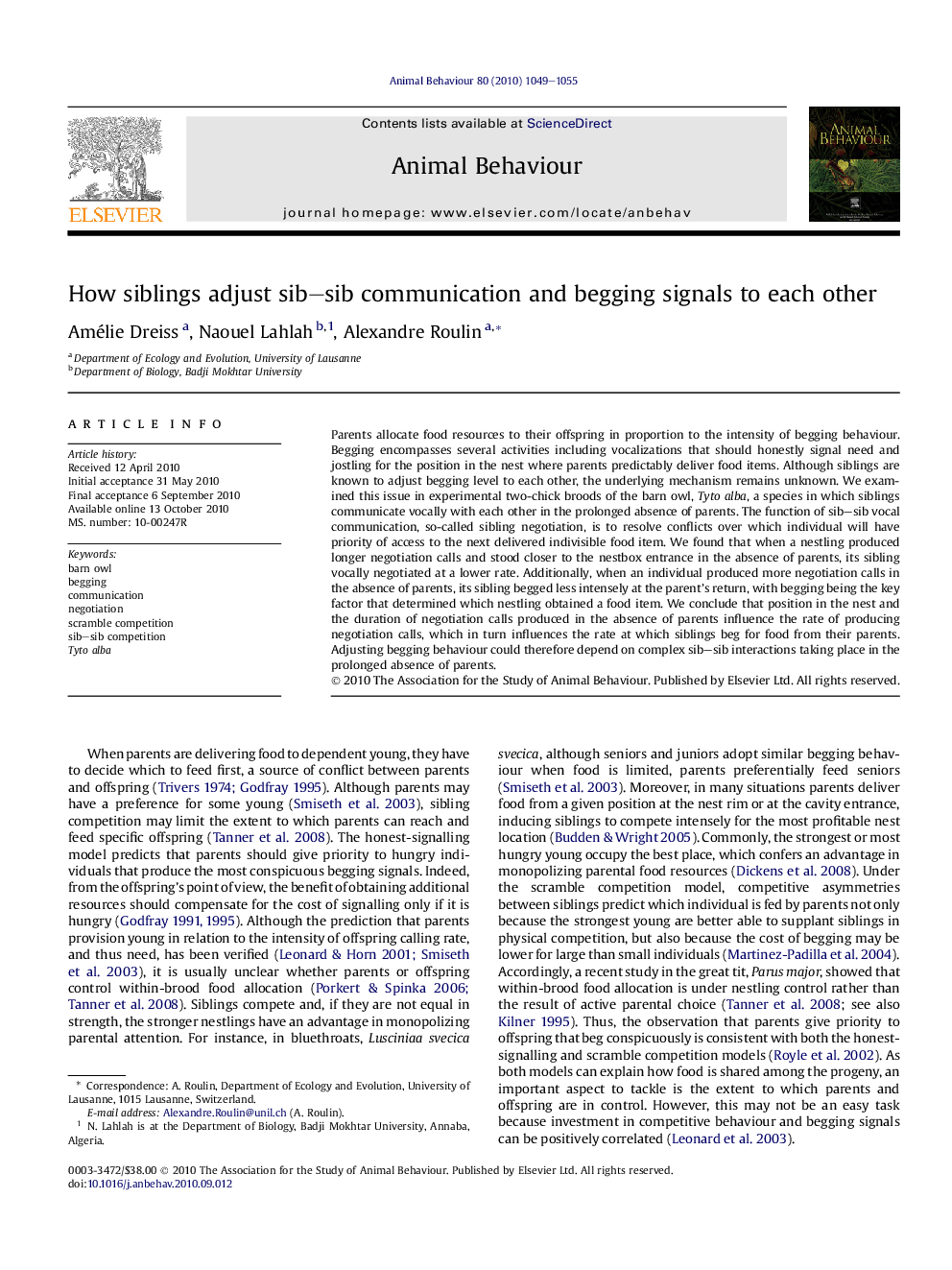| Article ID | Journal | Published Year | Pages | File Type |
|---|---|---|---|---|
| 2416789 | Animal Behaviour | 2010 | 7 Pages |
Parents allocate food resources to their offspring in proportion to the intensity of begging behaviour. Begging encompasses several activities including vocalizations that should honestly signal need and jostling for the position in the nest where parents predictably deliver food items. Although siblings are known to adjust begging level to each other, the underlying mechanism remains unknown. We examined this issue in experimental two-chick broods of the barn owl, Tyto alba, a species in which siblings communicate vocally with each other in the prolonged absence of parents. The function of sib–sib vocal communication, so-called sibling negotiation, is to resolve conflicts over which individual will have priority of access to the next delivered indivisible food item. We found that when a nestling produced longer negotiation calls and stood closer to the nestbox entrance in the absence of parents, its sibling vocally negotiated at a lower rate. Additionally, when an individual produced more negotiation calls in the absence of parents, its sibling begged less intensely at the parent’s return, with begging being the key factor that determined which nestling obtained a food item. We conclude that position in the nest and the duration of negotiation calls produced in the absence of parents influence the rate of producing negotiation calls, which in turn influences the rate at which siblings beg for food from their parents. Adjusting begging behaviour could therefore depend on complex sib–sib interactions taking place in the prolonged absence of parents.
